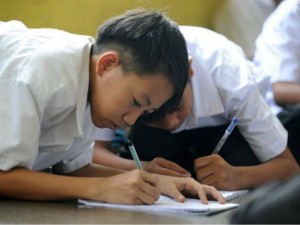A think tank like no other for young PH scholars
MANILA, Philippines—They could well be the Rizals and Mabinis of their generation—young Filipino scholars from diverse disciplines who are lending their expertise to raise the standard of academic research and policy studies.
And yes, they get to do this while keeping their day jobs.
Top young lawyers, economists and experts from other fields educated in the world’s leading universities have come together to establish the Angara Centre for Law and Economics, a venue for knowledge-sharing that they believe has been lacking in the Philippines’ intellectual landscape.
It’s a think tank like no other, a neutral voice that brings together Filipino thinkers from around the world in a single home of ideas.
The center is touted to be “the only academic research institution in the Philippines dedicated to the scientific analysis and international assessment of local and regional legislation, policies and public sector programs.”
Article continues after this advertisementIt fills the gap Filipino scholars have long been trying to fill: the pursuit of their dreams that may keep them overseas while fulfilling their passion to make a contribution to their homeland.
Article continues after this advertisement“I have met a lot of Filipinos, Filipino-Americans in Harvard. Everyone had a great idea, a passion to contribute to the country. But they also have to face realities,” said Alfredo Molo III, a law professor at the University of the Philippines who completed his master of laws at Harvard University.
“I thought, why does it have to be a choice all the time? Go back to the Philippines, forgo your dreams outside before you’ll be able to help. It doesn’t have to be a choice,” said Molo, one of the center’s founding members.
Entry point
The idea was hatched on a trip to Cape Cod in Massachusetts last year when Molo got together with fellow UP graduates pursuing higher studies in the United States.
“(We) were having this long discussion in front of the seaside saying, ‘I don’t see why we cannot do this.’ Many of us are committed to coming back. It’s just a question of how you make that entry point coming back in a way that’s most efficient,” said Diane Desierto, the first Filipino woman master of studies in law graduate of the Yale Law School.
“There’s a growing crop of people who are getting into the top universities and schools. And then they head back and the entry point to try and contribute back is difficult because there’s a bureaucracy that has to be navigated. And sometimes their window to be able to contribute is small,” Desierto said at the launch of the center on Friday.
They pitched their idea to Sen. Edgardo Angara, citing his track record in supporting education reform and using vetted research in crafting legislation.
“We have worked with him before and we know his commitment to public reform,” Desierto told the Inquirer.
Diversity of ideas
Involving a politician does not compromise the center, which aims for diversity of ideas and freedom from a singular advocacy. It pools together ideas from as many experts possible, according to the group.
“That’s the brilliance of the center. You can keep your job, work an honest living and still be able to apply to the center. This affords me this avenue to engage my passion, put on a different hat but still relate to what I know, which is the law,” said lawyer Joan de Venecia, who finished her master of laws at New York University.
Thus, if a lawmaker, say, needs advice on climate change or maternal health, the center will seek out inputs from within its ranks. The output: a well-researched document representing different voices.
The center also aims to hold at least one major international conference a year in Manila with experts from around the world.
30 scholars
“We don’t have any advocacy. If anything, our advocacy is rigorous thought. We encourage rigorous analysis, we like to listen to different viewpoints,” said Desierto’s sister Desiree, who has a master of science in economics from Oxford.
To date, up to 30 Filipino scholars around the world have signified their intention to contribute to the center, Diane Desierto said.
For Angara, the center embodies an organization he had been searching for. As he put it, the country has the research skills but lacks an organized research system to support legislation and policy making.
He recalled that in 1992, he tried to put together a universal health-care system in the Philippines but only had a handful of economists from UP to help.
“It was embarrassing for me to have to go to the US ambassador and ask for assistance. He contacted the Harvard School of Public Health and they sent two professors who stayed with us for six months until we had a working draft of what is now PhilHealth,” Angara said.
Intellectual exchange
With the center, Angara and the scholars hope to facilitate an intellectual exchange never before seen in the Philippines.
At the helm of the center is John Nye, an expert in new institutional economics who has been invited as consultant in Moscow, Latin America, Asian Development Bank and with President Aquino, his batch mate at Ateneo de Manila University.
Speaking about the value of a neutral think tank in the country’s often politically charged national discussion, Nye said: “This kind of workshop will set the stage on how to frame the debate.”
“Rather than jump right away to very specific issues like the RH (reproductive health) bill or Cha-cha (Charter change), first let’s think of the broader questions so we know how to strategize it. Then let’s talk about the specific problem at hand,” Nye said.
